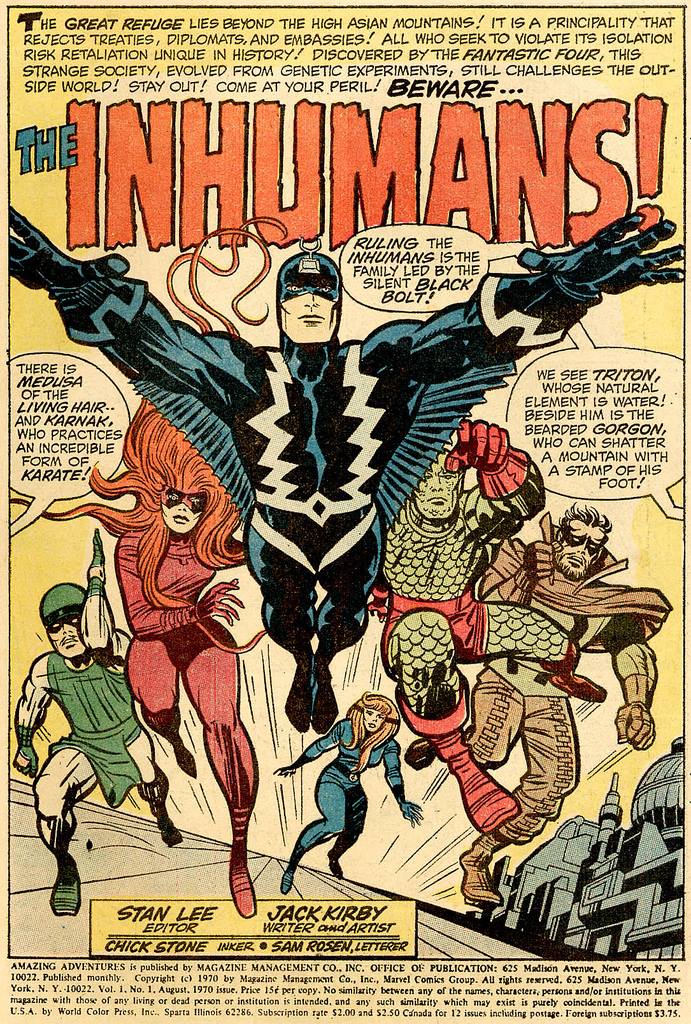home
That other time Kirby was given writing credit

J David Spurlock
6 June 2016
Unfortunately, editor Stan Lee did too-little, too-late to keep his top writer-artists. In near last-minute efforts, he finally gave Ditko, Wood, and Kirby, respectively, some writing credit just before they walked. That in itself is evidence that the lack of writing credit/compensation was a key factor in such stellar talents leaving Marvel and was an ongoing bone of contention between the freelance creators and their editor. Here we see Jack Kirby getting rare writing credit in Amazing Adventures #1 from 1970, just as he was about to make his exit.
J David Spurlock Amazing Adventures #4

Patrick Ford: I would wager that Wood wrote/plotted the Doctor Doom stories which were credited to Roy Thomas and then Lee's brother which appeared in ASTONISHING TALES 1-4.
J David Spurlock: Roy Thomas confirmed to me that WOOD wrote/plotted Dr. Doom. Stan just asked him to punch it up a bit "Marvel Style." He likewise confirmed that EVERYthing he did with Kirby at Marvel, including Ka-Zar, was plotted by Kirby.
Patrick Ford: Except somehow Roy Thomas believes that Lee plotted for Kirby.
At least in the sense of giving Kirby a basic idea. But the trouble is the basic ideas are ideas associated with Kirby. And those sorts of ideas are absent when (for example) Dick Ayers is sitting in for Kirby on the early Human Torch stories in STRANGE TALES.
J David Spurlock: I think he maintains that SOMETIMES Stan contributed ideas to plots.
Patrick Ford: Maybe in private to you. That isn't his public stance.
J David Spurlock: Despite their differences, Roy, like many others, recognizes and values Stan's positive role in mentoring his career. Little in life is as black & white as a Ditko story. Most of us have both strengths and weaknesses. While Stan is around, it would be natural for Roy to be torn between respect for his mentor and reporting on everything. It may be that the historian in him might be inspired to reveal new knowledge at some time in the future. I know that as soon as Joe Orlando retired, he seemed eager to tell all. Infantino was never concerned about political correctness after leaving DC but, right toward the end — including in his last panel ever, which was with both Roy and myself — he was even more forthcoming... Let's just hope Roy's keen memory stays strong until he is ready to shed more light on his tenure at Marvel.
Michael Hill: Maybe Thomas wants to be an historian when he grows up, instead of a false witness.
Patrick Ford: I would assume he's contractually bound (or was) to support Lee. The thing is he goes out of his way the be critical of Kirby's version of events and in instances like the lawsuit where he was not in New York city between 1958 and 1963 he went ahead and testified about all sorts of things he knows nothing about. When it comes to the 1958 to 1963 time period and what went on between Kirby and Lee, Thomas has no more knowledge of the situation than anyone else who was not there.
home

